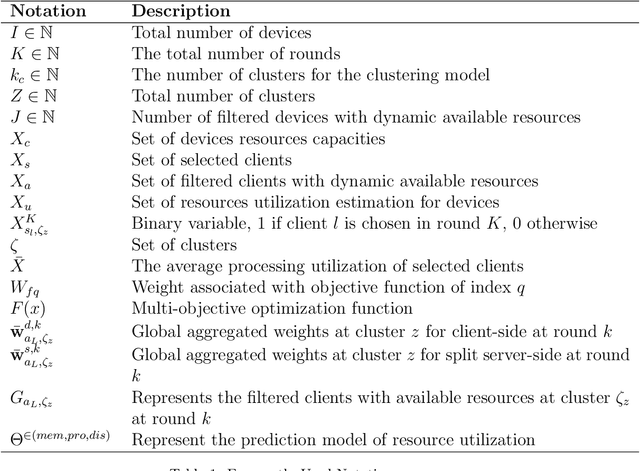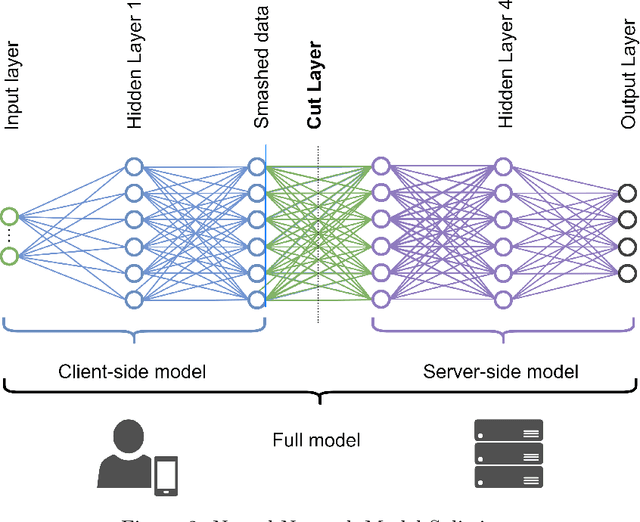Hakima Ould-Slimane
CRSFL: Cluster-based Resource-aware Split Federated Learning for Continuous Authentication
May 12, 2024



Abstract:In the ever-changing world of technology, continuous authentication and comprehensive access management are essential during user interactions with a device. Split Learning (SL) and Federated Learning (FL) have recently emerged as promising technologies for training a decentralized Machine Learning (ML) model. With the increasing use of smartphones and Internet of Things (IoT) devices, these distributed technologies enable users with limited resources to complete neural network model training with server assistance and collaboratively combine knowledge between different nodes. In this study, we propose combining these technologies to address the continuous authentication challenge while protecting user privacy and limiting device resource usage. However, the model's training is slowed due to SL sequential training and resource differences between IoT devices with different specifications. Therefore, we use a cluster-based approach to group devices with similar capabilities to mitigate the impact of slow devices while filtering out the devices incapable of training the model. In addition, we address the efficiency and robustness of training ML models by using SL and FL techniques to train the clients simultaneously while analyzing the overhead burden of the process. Following clustering, we select the best set of clients to participate in training through a Genetic Algorithm (GA) optimized on a carefully designed list of objectives. The performance of our proposed framework is compared to baseline methods, and the advantages are demonstrated using a real-life UMDAA-02-FD face detection dataset. The results show that CRSFL, our proposed approach, maintains high accuracy and reduces the overhead burden in continuous authentication scenarios while preserving user privacy.
Warmup and Transfer Knowledge-Based Federated Learning Approach for IoT Continuous Authentication
Nov 10, 2022



Abstract:Continuous behavioural authentication methods add a unique layer of security by allowing individuals to verify their unique identity when accessing a device. Maintaining session authenticity is now feasible by monitoring users' behaviour while interacting with a mobile or Internet of Things (IoT) device, making credential theft and session hijacking ineffective. Such a technique is made possible by integrating the power of artificial intelligence and Machine Learning (ML). Most of the literature focuses on training machine learning for the user by transmitting their data to an external server, subject to private user data exposure to threats. In this paper, we propose a novel Federated Learning (FL) approach that protects the anonymity of user data and maintains the security of his data. We present a warmup approach that provides a significant accuracy increase. In addition, we leverage the transfer learning technique based on feature extraction to boost the models' performance. Our extensive experiments based on four datasets: MNIST, FEMNIST, CIFAR-10 and UMDAA-02-FD, show a significant increase in user authentication accuracy while maintaining user privacy and data security.
 Add to Chrome
Add to Chrome Add to Firefox
Add to Firefox Add to Edge
Add to Edge